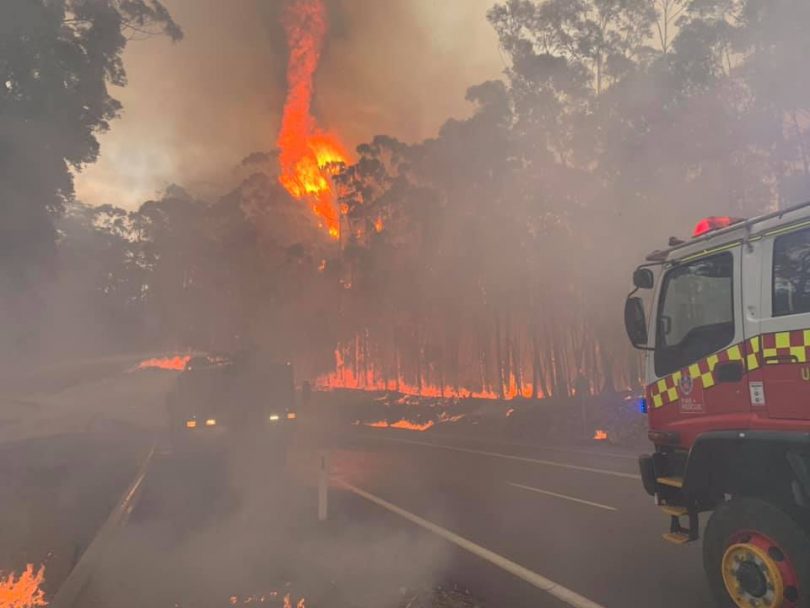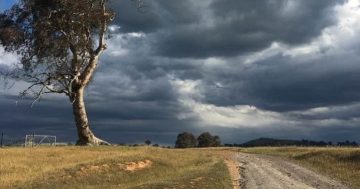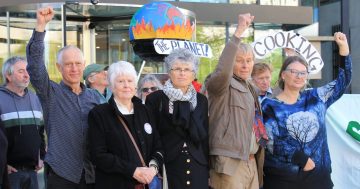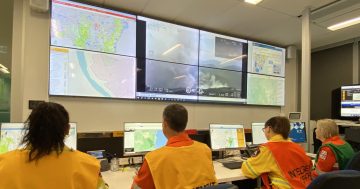
The Currowan Fire: the response to the bushfires must be science-based and acknowledge climate change. Photo: Ulladulla Fire and Rescue.
It’s only to be expected but the calls for a greater slash and burn approach to the landscape have come thick and fast during the ongoing bushfire crisis, given prominence on the usual platforms that play down the links to climate change and global warming.
One can understand the logic – reduce the fuel and you reduce the fire, but it’s more simplistic than just simple.
And people from the Victorian Premier to the NSW and Victorian fire chiefs have been quick to put out these spot fires of distraction in the middle of trying to save property and life.
NSW met its hazard reduction targets but has still suffered. Victoria did not, but the opportunities to do so safely were extremely limited. Both fire chiefs stressed that the window for safe hazard reduction is getting smaller as the fire seasons lengthen and the climate changes.
Even where there has been reduced fuel, even in some cases bare fields, fire has been undeterred.
Nonetheless, blowhards such as Coalition backbenchers Barnaby Joyce and Craig Kelly (yes, of that trainwreck of an interview with Piers Morgan) continue to spout half-truths, myths and downright lies about the benefits of hazard reduction and prescribed burning, and those dark (Green) forces preventing it from being practiced.
Despite the Greens having hazard reduction and back burning listed on their platform for years, they are repeatedly demonised for stopping landholders and national park managers doing the work, and blamed when fires break out.
As many have pointed out, the Greens do not control any relevant council or government in Australia and have no power or even desire to veto such work.
Yet, this canard continues to be rolled out whenever a bushfire rears its head.
Some who have lost their properties, including farmers, point to the fuel loads and argue more could have been done, and this is perfectly understandable, if not the entire story.
It feeds into a false narrative that if landowners could just be left alone to manage their properties as they see fit all would be well, ignoring the fact that both Queensland and NSW have loosened rules for vegetation management that has led to an explosion in land clearing.
It’s a persistent 19th-century frontier mentality that can no longer be afforded in these times, which is calling for a transformation in the way we relate to the land.
Others such as the Construction, Forestry, Maritime, Mining and Energy Union (CFMMEU) and the Australian Forest Products Association (AFPA) have been, as ANU researcher Professor David Lindenmayer says, ”crassly opportunistic” in calling for more ‘active management’ of forests, including selective logging.
Scientists say the forestry industry’s approach would only increase the fire risk, opening forest canopies to the sunlight and exacerbating drying and understorey growth.
Changes to forest and land management, probably incorporating Indigenous practices, will be part of the response but it must be science and evidence-based.
No doubt in the inquiry to come when the crisis pauses (we can’t say ends because that is the nature of the beast we are now dealing with) the megaphones will be trained on the inquisitors in a bid to drown out the quieter voices of science and reason.
It is worth noting that the events of this spring and summer were predicted with unerring accuracy more than a decade ago in Ross Garnaut’s 2008 Climate Change Review, which examined the scientific evidence around the impacts of climate change on Australia and its economy.
The group of retired fire chiefs who so desperately wanted to meet with the Scott Morrison’s government were strident in their fears about the fire season, but were ignored.
Government in Australia has preferred to listen to the naysayers and the vested fossil fuel interests instead of the experts and scientists, whose alarm is now growing as the clock for action ticks down.
Its narrow focus on what constitutes economic growth has seen it be a laggard in positioning the nation for the inevitable transition to a green economy.
When the investigations begin, government, including a Federal Government seemingly in thrall to its right-wing denialist rump, must look to the science and ignore the megaphones of delusion and blatant self-interest.
It is also time for scientists, professionally a sober and not so communicative lot, to muster their arguments and raise their voices so they can be heard above the din, and the gravity of the disaster facing the country can be fully understood.
It really is time for Australia to wake up before it is too late.
















